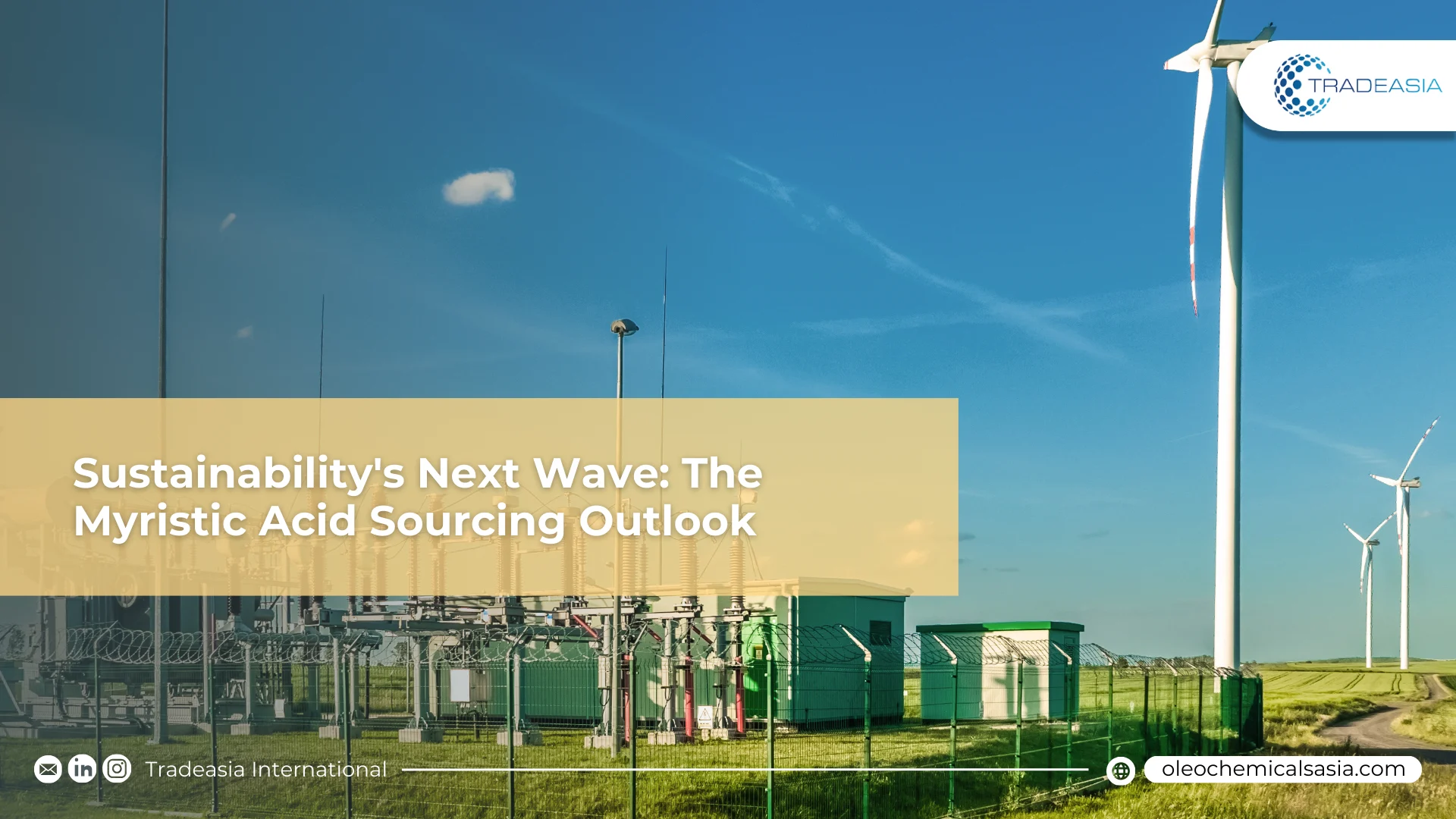Article
18 September 2025
Sustainability's Next Wave: The Myristic Acid Sourcing Outlook
Oleochemicals

Table of Content
- The Smallholder Imperative and Regulatory Revolution
- Beyond Carbon: The New Frontiers of ESG
Article
18 September 2025
Oleochemicals

For companies in the oleochemical space, meeting today's sustainability standards was just the first step. The landscape is rapidly evolving, and the period leading up to 2040 will be defined by a new, more complex set of challenges and opportunities that we call "Sustainability 2.0." Being prepared for this next era requires foresight and strategic partnerships, and Tradeasia International is dedicated to helping clients stay ahead of the curve.
Two powerful forces are reshaping the future of sourcing. First is the smallholder issue: these independent farmers manage roughly 40% of all oil palm land but represent less than 5% of certified production. Integrating them into sustainable supply chains is the industry's next great challenge. Second is the regulatory revolution, spearheaded by the EU Deforestation Regulation (EUDR). This policy now mandates strict, plot-level traceability for all imports, directly impacting over €3 billion in annual palm derivative trade and setting a new global benchmark that other nations will likely follow.
The most forward-thinking companies know that sustainability is about more than just a single metric. While carbon reduction remains critical, the next decade of ESG leadership will be defined by a more holistic approach. Future sourcing decisions will increasingly be judged on metrics like water stewardship—measuring the liters of water recycled per ton of product—and demonstrating a net-positive impact on biodiversity within plantation landscapes. In this new era, true sustainability means building a supply chain that is not just low-carbon, but resilient, inclusive, and environmentally regenerative.
Sources:
Reports on Smallholder Farmer Programs - World Wildlife Fund (WWF)
Analysis of the EU Deforestation Regulation (EUDR) - https://www.google.com/search?q=Oleochemicalsasia.com
Official EUDR Documentation - European Commission
We're committed to your privacy. Tradeasia uses the information you provide to us to contact you about our relevant content, products, and services. For more information, check out our privacy policy.
Leave a Comment